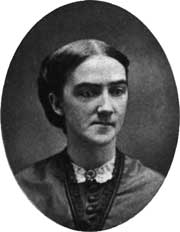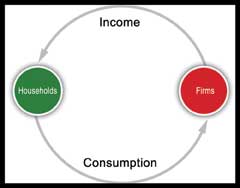Simran Luthra
In a country where the word ‘science’ elicits immediate respect, prefixing ‘home’ to science instantly leads to the lowering of the hallowed status that ‘science’ otherwise enjoys. In this article I explore some of the problems that home science has faced and contributed to its low status, as well as the urgent need to recognize the relevance of the subject in the kind of world and economy we inhabit today.
A brief history of home science
The history of home science or home economics (or domestic science as it is also variously called), is a rather fascinating one.

Ellen Henrietta Swallow Richards, who can be regarded as the mother of home science, graduated from Massachusetts Institute of Technology in the 19th century, where she was the first woman student to be accepted by a scientific school. Richards was interested in the application of scientific principles to domestic topics such as sanitation, nutrition, fitness, clothing and so on. She helped set up the American Home Economics Association in 1908, and was its first president.
Home economics in the United States actually began as a movement. Its goal was “the improvement of living conditions in the home, the institutional household and the community.” It was aimed at women applying scientific discoveries to improve the home and professionalizing the homemaker’s job, with women learning about things such as bacteriology (study of microbes) which would find application in sanitation, food preparation and interior decoration. However, it was also aimed at “students, investigators, housekeepers, institutional managers, social and municipal workers, interested housewives and homemakers [and] professional workers in allied fields” to underscore its social significance as the home economics movement.
Similarly in India, home science was introduced as domestic science between 1920-40 by the British administration in some schools and colleges. It was meant to benefit not just households but also communities as a humanistic science. However, in India too, like in the U.S., home science came to be looked upon as the domain of accomplished housewives.
Hence, there has been a strong feminization of the subject everywhere because it was meant for the homemaker, who, in a post-industrialization society, nearly cent-percent of the time, happened to be a woman. And the moment this happens in a patriarchal world, the status of a discipline or profession automatically declines.
In recent years a meme supposedly made of a page of a 1950s home economics book has been going viral.
So while the beginnings of the discipline were quite radical, what happened along the way is that the subject became in some part and also came to be seen as “glorified housekeeping”. The distancing that feminists hence wanted from home science is understandable and justified, because the economic value of women’s household work wasn’t recognized.
The recent debate around whether or not homemakers should be paid for housework is proof of the low status relegated to the home and household work even today, which again is related to the low status of a subject such as home science.
Where do things stand today?
Sadly, this perception and reception of the subject has become quite fixed.
When in 2021, I ask my niece who’s in grade 10 and has opted for home science, about her general thoughts on it, the first thing she shares is that it’s not a subject offered to the boys’ division of her school (because boys don’t need it!). The only marker of progress here is the unambiguous and vehement disapproval of my 16 year-old niece as it being a discriminatory and sexist decision.

She also points out how it has a low status in the eyes of her classmates who have opted either for computer applications or commercial applications. And that the only come-back she has is that it’s an easy-A!
This last claim is complicated by the fact that while the subject-matter is not that complex, it does involve a great deal of rote-learning (the ICSE board expects word-for-word as is in the textbook in the exam answer sheets!) and that this aspect, of course, makes it a drag.
She goes on to share how they are learning about the different kinds of lampshades and wonders how that would help her, unless perhaps she becomes an interior-designer.
And that brings us to the next problem with home science.
It’s a generalist’s subject!
Nutritionists and dieticians are well-respected for their understanding of food and the human body. Chefs (ironically a large number of men), are one of the highest paid professionals. Interior design can again fetch a lot of money. But home science, the multidisciplinary subject that promises exposure to as many of these separate strands, isn’t nearly as popular. And the reason perhaps is that it’s a subject that trains generalists and not specialists.
Interior design, nutrition, culinary arts, sanitation are just a few components of the umbrella discipline of home science. And once you follow just the one strand and specialize in it, the status jumps right back up!
We need to rescue home science (but why?)
So, one of the troubles with home science is that it has constantly slipped back into being perceived as a subject suited to women, whose main preoccupation in life is housekeeping. The specializations are a different matter, and are high-status, lucrative, respected options. However, in all of this actually, it is the ‘home’ that is relegated a low position.
So, it seems like if the activity is outside the home and is a ‘proper career’, the status is high, whether it is cooking or decorating or advising on nutrition. Only when the subject is meant for the ‘home’, its status lowers. (Perhaps it was in order to read just this perspective that in 2017 the name ‘home science’ was changed to ‘community science’ in all agricultural colleges in India.)
What is overlooked also is the centrality of the household to economic activity. Economic activity can actually be divided into two sides: households and businesses. Both of these interact in markets. Goods and services are bought by households, but households also supply capital, resources, and entrepreneurial ability. Ultimately businesses are also owned by people who have households.

What we see in an increasingly neoliberal and consumerist economy is that everything related to the household is increasingly outsourced. We are producing more goods and services than ever before, and not just that, majority of these goods are being recklessly produced in terms of their suitability for the environment or the human body as the gigantic corporations that have come to dominate this sector prioritize profit over all else. The unsustainable production of plastic or the thoughtless use of chemicals in household and personal care products are prime examples of this.
The culture of consumption facilitated by advertising, the sheer number of choices, products, the ease of shopping, and wide availability of products have also undermined the pre-existing culture of home remedies and local knowledge. Fancily packaged products that we don’t need or didn’t previously use, have come to be regular features on our shopping lists. (Paper kitchen towels that have replaced cloth ones that used to be popular and a more sustainable alternative, are just one example.)
In this sense, home science having a low status seems to be almost political in nature. The home is a key site for both patriarchy and capitalism and to be able to subvert what happens in the home is hence of great consequence.
Given that the home is the real driving force of capitalism and the economy, it is even more urgent that home science perhaps becomes mandatory in the school curriculum irrespective of gender, as a counter-current to increasing consumerism and dependence on the market, and promote zero-waste and sustainable living that are the need of the hour.
It’s common sense. But is common sense common enough?
One of the comments made by my niece with regards to the content taught in home science was that, “It’s common sense!” And while this might be true to some extent, as has been highlighted amply by many, common sense indeed isn’t as common at all.
The pandemic and ensuing lockdown in fact became a moment of respite that broke regular patterns, including those of shopping at the local supermarket and spending inordinate time at home, giving up on the luxury of house help for many people, and became a time for people to re-evaluate their choices and practices. DIY, traditional home remedies and recipes once again became popular.
These have the potential to be anti-consumerist and environment-friendly, and perhaps in that sense the home science curriculum also might need an overhaul to incorporate indigenous and local forms of knowledge, and focus on being sustainable, rather than just efficient and effective.
References
• https://www.sciencehistory.org/historical-profile/ellen-h-swallow-richards
• Stage, Sarah, and Virginia B. Vincenti, editors. “[SECTION I Introduction].” Rethinking Home Economics: Women and the History of a Profession, Cornell University Press, ITHACA; LONDON, 1997, pp. 15-16. JSTOR, www.jstor.org/stable/10.7591/j.ctv2n7jkd.6. Accessed 25 Feb. 2021.
• https://timesofindia.indiatimes.com/india/should-women-be-paid-for-household-work/articleshow/80700131.cms#:~:text=Two%20experts%20debate&text=The%20idea%20of%20salaries%20for,slaves%20pandering%20to%20their%20husbands.&text=These%20concerns%20are%20valid%2C%20and,been%20more%20aspirational%20than%20practical. (accessed on 28 February 2021)
The author is based in Pune and is currently pursuing her PhD. in Education from TISS, Mumbai. She has completed her Masters in English from Jadavpur University and Masters in Education (Elementary) from TISS, Mumbai, and taught Hindi at Stanford University, California while on a Fulbright fellowship. She is passionate about language, social studies education, human rights, gender, life skills and teacher education in particular. She can be reached at simranluthra@gmail.com.
